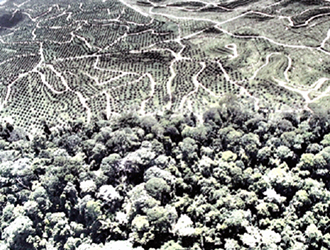Smallholders stand to gain via Sabah's CSPO pledge
Published on: Wednesday, December 02, 2015

Kota Kinabalu: Smallholders who lack knowledge and support for good agricultural practices or skills such as negotiating rates for their harvest stand to gain from the Sabah Government's move to fully produce Certified Sustainable Palm Oil (CSPO) within the next 10 years.The Malaysian Palm Oil NGO Coalition (MPONGOC) said the commitment will, in addition, help secure environmental benefits such as safe water supply and soil conservation, as all producers in Sabah will be both obliged and assisted to meet globally-accepted standards such as those advocated by Roundtable on Sustainable Palm Oil (RSPO)."The commitment to help Sabah's smallholders achieve RSPO standards will future-proof their access to top-flight international markets," MPONGOC representative Cynthia Ong said, in a statement.
ADVERTISEMENT
Jurisdictional level certification is the term used to refer to a landscape approach to transform the palm oil supply chain from grower to consumer. In this case, the landscape is the State of Sabah and the underlying idea is to add people and planet to the profit motivation of cultivating oil palm, and in the process restore ecosystems and secure improved livelihoods for smallholders. Many smallholders are hardly able to cover their production costs, translating into low income. Access to good planting material, effective fertiliser regime and other important aspects stressed by RSPO could lead to improved yields. This is in tandem with one of the key deliverables under the National Key Economic Area (NKEA) for oil palm, which is to close yield gaps between large estates and smallholders.
ADVERTISEMENT
"Moving to these standards together as a State will help both through economies of scale and through ensuring that careless and currently inefficient producers will not act to undermine the progress being achieved by others, for example by avoiding the pollution of rivers. "In showing leadership for the region and the world, Sabah which produces over 10 per cent of global palm oil can continue to grow in reputation, partnerships and securing global market access. Lessons and inspiration from transformation here may then help other producing areas move forward," Cynthia, who is Land Empowerment Animals People (LEAP) Executive Director, said.
ADVERTISEMENT
MPONGOC, a civil society grouping made up of non-governmental organisations and a research organisation, is committed to playing an active role in making sure this new vision set by the Sabah Government is a success.In making the announcement on behalf of the government, Sabah Forestry Department Director Datuk Sam Mannan said the move will elevate the State's position in responsibly producing palm oil and would spur the interest of markets keen to source vegetable oil as a premium product. MPONGOC has also been critical of international campaigns that speak moralistically to Southeast Asians and promote market standards to western consumers with no attempt to help local producers, especially smallholders, to reach those standards. MPONGOC is thus calling on the international community to partner with Sabah's commitment to help its producers meet these new standards, a move that will open pathways to change at scale in Southeast Asia. "The international donor and aid community should focus on backing local initiatives with real prospect of transforming at landscape scale, rather than allocating funds according to the per capita income of large nation states," Cynthia said in reference to the non-eligibility of Malaysian Borneo states of Sabah and Sarawak for development aid. MPONGOC is also hoping the formation by Malaysia and Indonesia of the Council of Palm Oil Producing Countries (CPOPC) will act as a higher level positive force globally. "We would hope that CPOPC will consider seriously the option to adopt RSPO standards, which have been developed over a decade, with input from some of Malaysia's and Indonesia's biggest producers, and which are recognised globally," Borneo Rhino Alliance (BORA) Executive Director, Datuk Dr Junaidi Payne said. Stay up-to-date by following Daily Express’s Telegram channel.
Daily Express Malaysia




